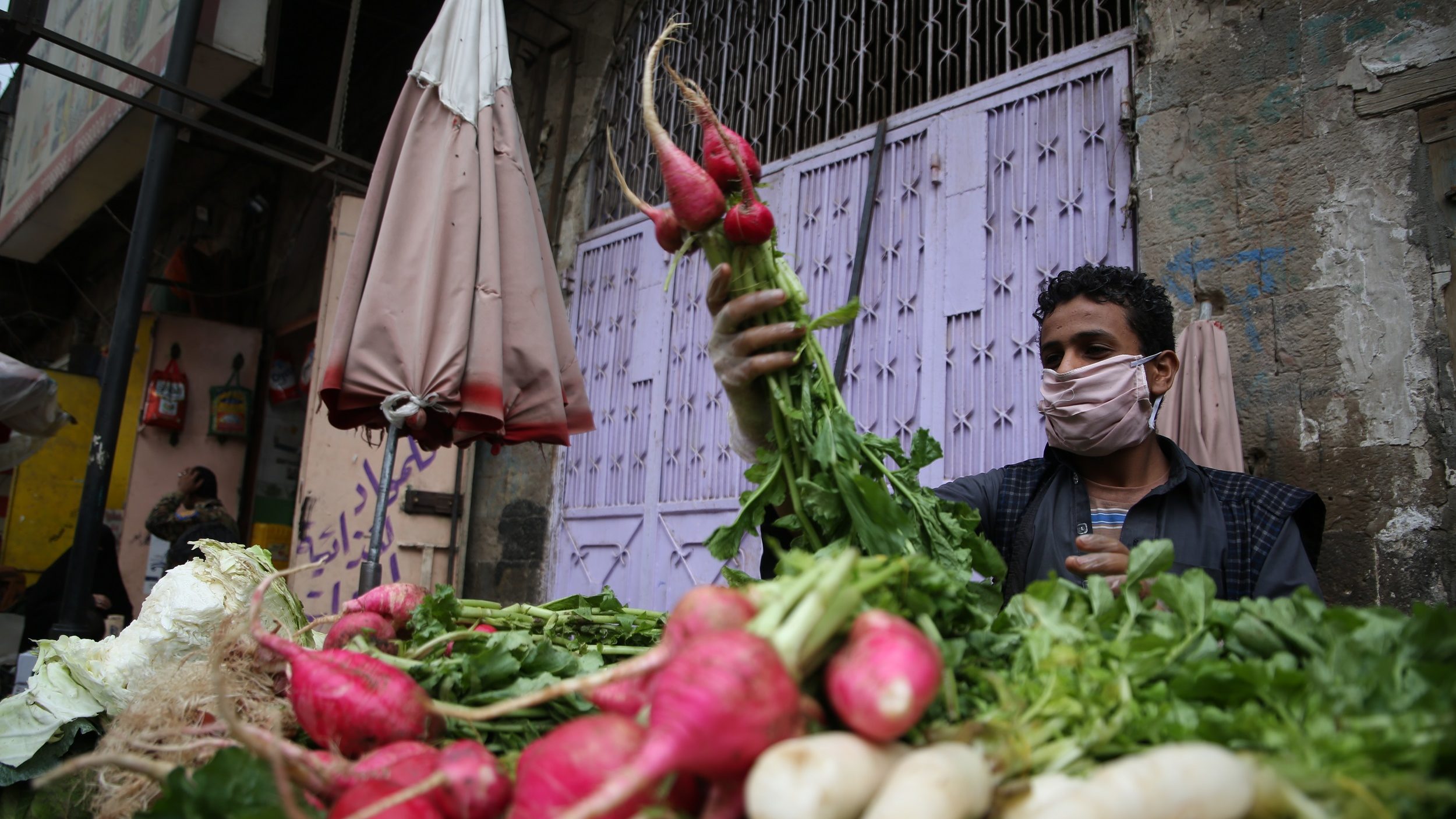COVID-19 Attacks Yemen
Health minister: An outbreak could see 90% of the population infected, 1 million people needing hospitalization
Ali Saleh Al-Oulufi (not his real name), a 35-year-old resident of Yemen’s capital Sanaa, died at Al-Thawra General Hospital on 25 April after becoming severely ill. Al-Oulufi’s symptoms included difficulty breathing due to a fever and constant cough. He was diagnosed with swine flu as soon as he arrived at the hospital’s emergency room. Later he was transferred to the intensive care unit and was put on a ventilator. Dr. Amani Mohammed, who works at the hospital, told The Media Line: “We implemented a swine flu test on the patient and the result was negative. His condition continued deteriorating until he passed away.” Dr. Mohammed added that the hospital later identified the illness as a viral fever.
“This is one of 13 similar cases the hospital received in less than a month, and all of them exhibited symptoms of a coronavirus. However, since there is no equipment to conduct tests in the hospital, these cases were diagnosed as swine flu, tuberculosis and a viral fever,” added Dr. Mohammed.
The doctor further explained that because the hospital has no rapid COVID-19 tests, deceased patients were not taken to labs for further tests, and other patients in Sana’a died after exhibiting similar symptoms, the presence of COVID-19 in Sana’a cannot be ruled out.
Dr. Rania Abdullah, an ICU physician in Kuwait Hospital, which was designated by the Houthi government to be a center for isolation of suspected COVID-19 cases, told The Media Line: “There are many cases [of COVID-19] and the situation is very dangerous, especially since the outbreak has not officially been announced and since mitigating measures to limit its spread have not been taken.” Dr. Abdullah added that she had received many critical cases in the hospital’s ICU and most of them had symptoms consistent with COVID-19.
Late in April, Houthi authorities closed Al-Salam Street in central Sana’a due to a suspected COVID-19 case. The patient’s entire family, which lives in the city’s Nuqum district, was quarantined. The neighborhood was disinfected and the government distributed facemasks to the public, according to a neighborhood resident.
The same happened with another family in Sanaa’s Alsonainah neighborhood. The Houthi government neither publicly confirmed these cases nor declared that test results had come back negative.
Dr. Mohammed told The Media Line that some patients highly suspected of being infected with the novel coronavirus had arrived at Al-Thawra Hospital. The hospital informed the epidemiological surveillance officer, who in turn alerted the Ministry of Public Health and Population team tasked with combating epidemics. That team later transferred some of the suspected cases to Zaid Hospital – one of two hospitals designated for receiving suspected cases of COVID-19. Similar to the previous group of suspected cases, these were not announced and it is unclear whether they tested positive for COVID-19. “Sometimes the team arrives too late and the patient has already died,” the doctor added.
On April 7, the Houthi public health minister announced to the House of Representatives that if a coronavirus outbreak hits Yemen, 90% of the population will be infected and, in less than 60 days, 1 million people will need to be hospitalized.
“Yemen has one hospital bed for every 20,000 people and one ventilator for every 70,000 people, and the health infrastructure is crumbling due to the ongoing war,” the minister added.
Following his statement, the minister announced a series of precautionary measures, such as closing land ports with the governorates controlled by President Abdrabbuh Mansur Hadi and imposing a quarantine on all arrivals from those governorates and from other neighboring countries affected by the pandemic.
In Aden, the supreme national emergency committee for COVID-19 announced seven cases in Aden and two deaths, in addition to two more cases in Taiz with no deaths. The committee’s announcement came after more than 15 patients died with severe lung infections that were first diagnosed as cases of chikungunya and dengue fever.
Dr. Amr Al-Turkey, head of the Yemeni Association of Emergency and Disaster Medicine, wrote on his Facebook page that he had 10 patients with acute, severe inflammation who had clear symptoms typical of coronavirus patients. Dr. Al-Turkey added that three doctors exhibited the same symptoms and were currently in critical condition.
Later, a group of hospitals in Aden announced that their emergency departments were closing due to their inability to address the outbreak.
Taiz governorate announced its first confirmed COVID-19 case on May 1, after which Dr. Abulqawi Al-Mekhlafi, head of the supreme national emergency committee for COVID-19 in Taiz governorate, announced his resignation.
To date, Yemen has confirmed 10 cases of COVID-19 in the Aden, Taiz and Hadramout governorates. One patient has recovered and two have died.


